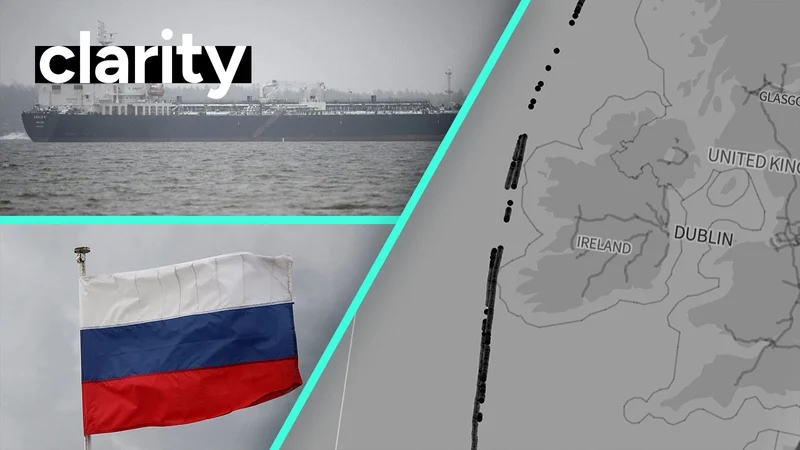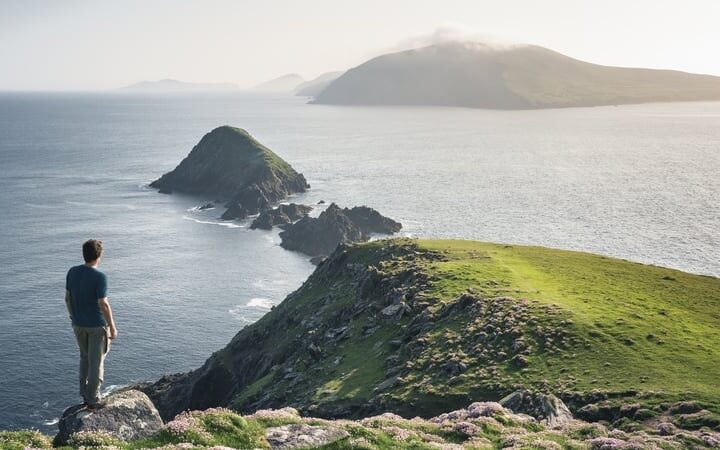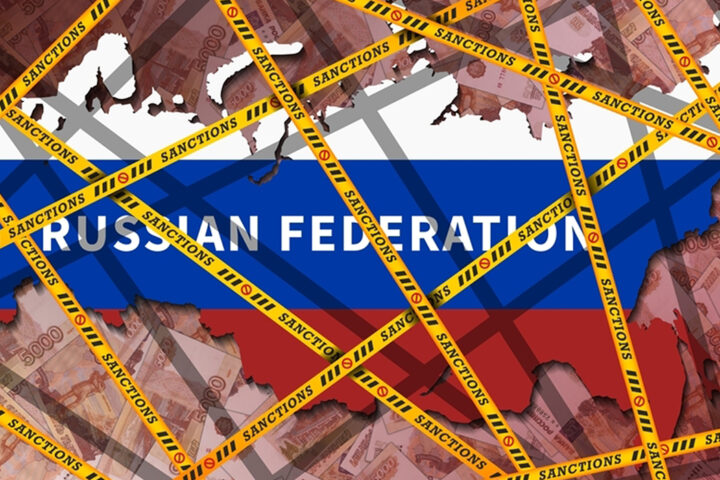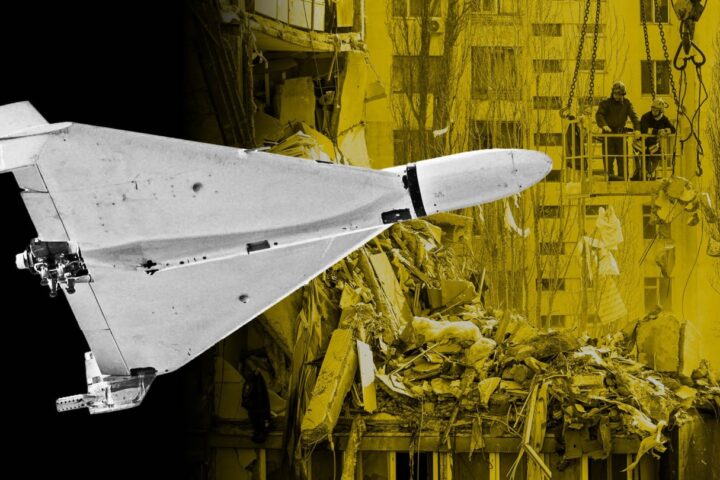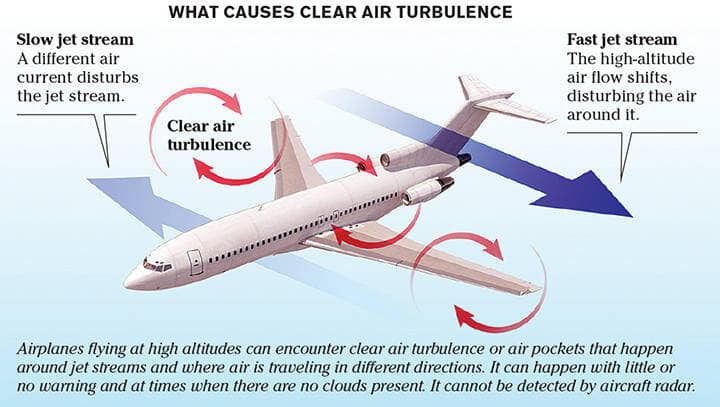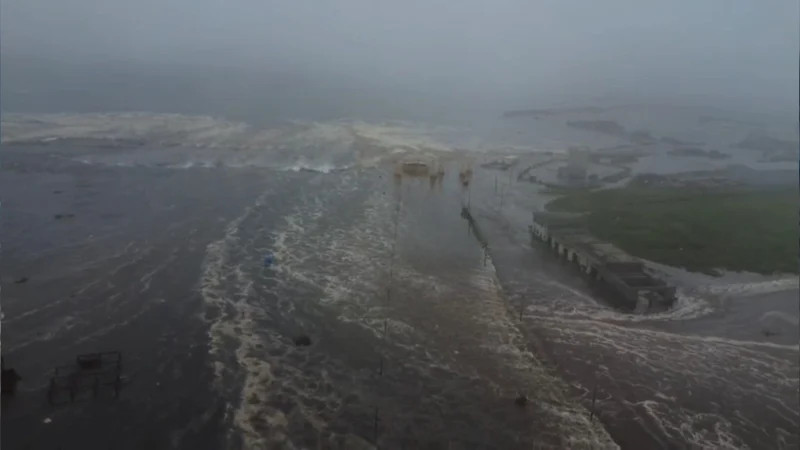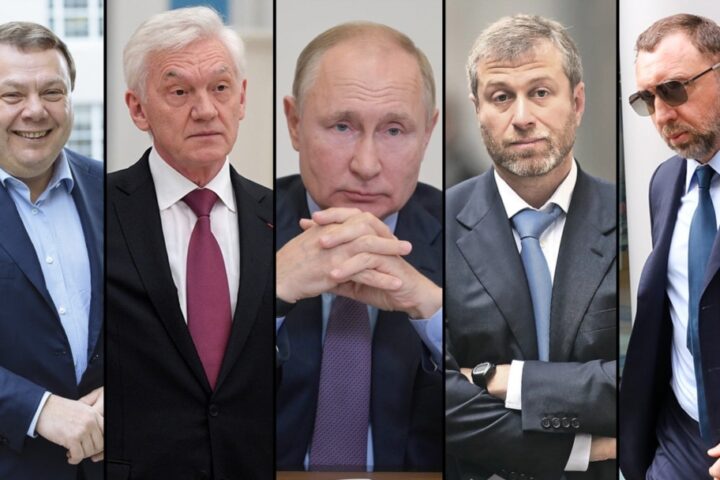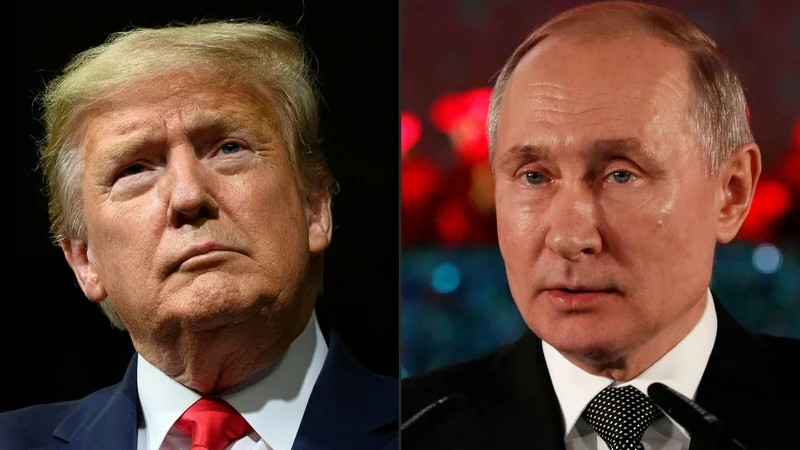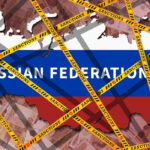Some 245 so-called ‘shadow fleet’ vessels passed through Ireland’s maritime Exclusive Economic Zone (EEZ) more than 450 times in the first seven months of this year, according to data obtained by RTÉ News.
Several countries under international sanctions operate ‘shadow fleets’.
Most of the vessels, many of which analysts say are poorly maintained and lack proper insurance, are Russian-affiliated and used to help Russia export oil and circumvent oil price caps imposed as part of western sanctions.
Seventy-two vessels, which have been directly named on sanctions lists, transited through the Irish EEZ in the time period, which covers 1 January to 23 July.
Experts have warned that their continued movement through Irish waters poses a serious environmental risk and undermines international efforts to isolate Russia’s energy sector which is used to fund the country’s war in Ukraine.
Ireland’s maritime EEZ extends roughly 370km off the west coast and is the site of major international shipping routes and multiple globally-important undersea cables.
Countries are obligated under the UN Law of the Sea to monitor activities within their EEZ, prevent illegal activity, and control pollution.
Vessels suspected of being part of the Russian ‘shadow fleet’ often use deceptive practices, including falsifying paperwork, to try to obscure the origin, destination and selling price of Russian oil on board.
They have been linked to damage caused to undersea cables in recent months, in particular in the Baltic Sea.
‘Shadow fleet’ vessels have also conducted activities considered risky at sea, including turning off location transponders and conducting ship-to-ship oil transfers.

The figures for activity in the Irish EEZ were provided by maritime intelligence company Windward, which uses satellite imagery and AI technology to spot and monitor ships, including those which turn their transponders off.
A specific break down of the data on visits to the Irish EEZ during the first five months of the year was also provided by Windward.
It showed that 40 of the 162 vessels which entered the Irish EEZ during that time frame were directly sanctioned with clear Russian affiliation.
Five of those were sailing under the Russian flag, while six were beneficially-owned by Russian companies.
Most of the others were flying under what are known as “flags of convenience,” meaning they were registered in countries with minimal oversight. These can be used to disguise ownership and thereby avoid scrutiny and evade sanctions.
Windward links the others to the ‘shadow’ fleet through research and analysis of maritime activities.
The top five ‘flags of convenience’ on ‘shadow fleet’ vessels travelling through the Irish EEZ were from the Marshall Islands, Liberia, Malta, Comoros and Panama.
Asked about its monitoring of ‘shadow fleet’ activity within the Irish EEZ, the Defence Forces said: “While it is our policy not to comment on specific operational matters, all relevant information gathered in support of Maritime Domain Awareness is shared in a timely manner with the appropriate national and international authorities.
“The Defence Forces, through the deployment of Naval Service and Air Corps assets, maintains a continuous presence and vigilance within Ireland’s maritime domain. We monitor all activity within our Exclusive Economic Zone (EEZ) as part of our routine operations to ensure the security and integrity of our waters.”
Irish Coast Guard data released
Separately, data from the Irish Coast Guard released under the Freedom of Information Act and analysed by RTÉ News, shows that the service also picked up signals from four western sanctioned Russian registered vessels in Irish EEZ waters since the turn of the year.
RTÉ used vessel tracking website MarineTraffic.com to trace the activities of these vessels around the time they were referenced in the Coast Guard data.
The Valentin Pikul carried out three ship-to-ship transfers with a Russian bunkering vessel in Murmansk in northwestern Russia between 30 March and 10 April, one week after it passed through Irish EEZ waters on 23 and 24 March.
The European Union-sanctioned Russian vessel Bratsk sailed through the Irish EEZ on 26 and 27 April, turning off its location transponder as it proceeded north off the Donegal coast.
The Russian-flagged crude oil tanker Belgorod transmitted intermittent location data as it travelled through Ireland’s EEZ on 6 and 7 May, two months after EU sanctions on the vessel were announced.
The Primoyre passed the Irish coast twice between 13 April and 2 May, going ‘dark’ to location tracking services for periods while off the coast of Clare and later Donegal.
Tony Cudmore, a retired Brigadier General with the Irish Defence Forces, said “an awful lot of this activity is intended to provoke and possibly to call into question the State’s authority.”
“The danger is that a perception is being created that the State’s authority in this area is being diminished,” he added.
He warned that there is also a significant environmental risk linked to the oil tankers, and that the clean-up cost would likely have to be borne by Ireland in the event of an oil spill while a vessel was uninsured.
“These ships are like having vehicles travelling on your roads which have no NCT. They have no insurance. They probably have not been serviced correctly. It’s quite possible that even their drivers, their masters, may not have professional competence,” he said.
As of May 2025, vessels transiting through EU EEZ waters, including Ireland, are required to provide proof of valid insurance even if they do not enter an EU port.
CEO and co-founder of Windward Ami Daniel said some countries have recently started to take enforcement actions, and Ireland could follow their lead.
“In the last month or two we are seeing the UK and the EU take a voluntary approach of questioning vessels who are transiting, on the radio – asking for their insurance coverage and other safety parameters,” Mr Daniel said.
In January, German authorities confiscated an oil tanker believed to be part of the Russian shadow fleet off the country’s Baltic Sea coast.
The Panama-flagged vessel, the Eventin, had been on its way from Russia to Egypt with a cargo of around 100,000 metric tons of oil, worth some €40 million.
Mr Daniel believes Ireland could take other steps to challenge vessels operating without insurance or valid maintenance records.
“It’s not just enforcement at sea. It’s enforcement on the flags [of convenience] and what they do with the flag states,” Mr Daniel said.
“The Irish Government can absolutely reach out to them and send them letters. For instance, are they allowing them to do ship-to-ship transfers and get fuel or other provisions while out there?” he added.
The Department of Transport told RTÉ News that the Irish Coast Guard, through its responsibility for search and rescue, maritime casualty and pollution response, actively monitors traffic in Irish waters and recognises the “risk that some of these vessels pose.”
“These risks include the increased possibility of a maritime casualty and search and rescue incidents from such vessels. For this reason, the Coast Guard has instituted specific measures to monitor the presence of these vessels and passage through and out of Irish EEZ” it said in a statement.
Sanctions impact
Since Russia’s invasion of Ukraine in February 2022, the EU, UK and the US have imposed restrictions on Russia’s energy sector, aiming to weaken its economy and limit its ability to fund the war.
As part of that, specific ships have been banned from EU territorial waters, denied insurance, and prevented from accessing certain maritime services as well as all European ports and territorial waters.
Last week the EU announced its 18th sanctions package against Russia which includes an additional 105 vessels being banned from accessing EU ports and locks, or undertaking ship-to-ship transfers of oil.
The UK also placed sanctions on 135 oil tankers in Russia’s “shadow fleet” this week.
In total, the EU has now imposed sanctions on more than 400 shadow fleet ships.

All European ports are also effectively barred from temporarily storing, handling, or processing Russian crude oil and petroleum products, with limited exceptions.
However, even with the sanctions, income generated by Russia’s exports have remained stable.
The federation exported 7.8million barrels of oil per day in 2021, a figure that had dipped only slightly three years later to 7.5million barrels per day, as it successfully redirected supplies to countries like China and India, according to the International Energy Agency.
John O’Brennan, Professor of European Politics at Maynooth University, attributes that at least in part to the activity of the ‘shadow fleet’, and says that individual European countries could do more to step up enforcement at a national level.
“Some national authorities within the EU have been less than vigilant about upholding those sanctions. That gap is one that Russia has been successfully able to exploit over the last couple of years,” Prof O’Brennan added.
Prof O’Brennan noted some Greek shipping owners have been prominent in selling their old vessels on to Russia to repurpose, rather than spending money on scrapping them.
